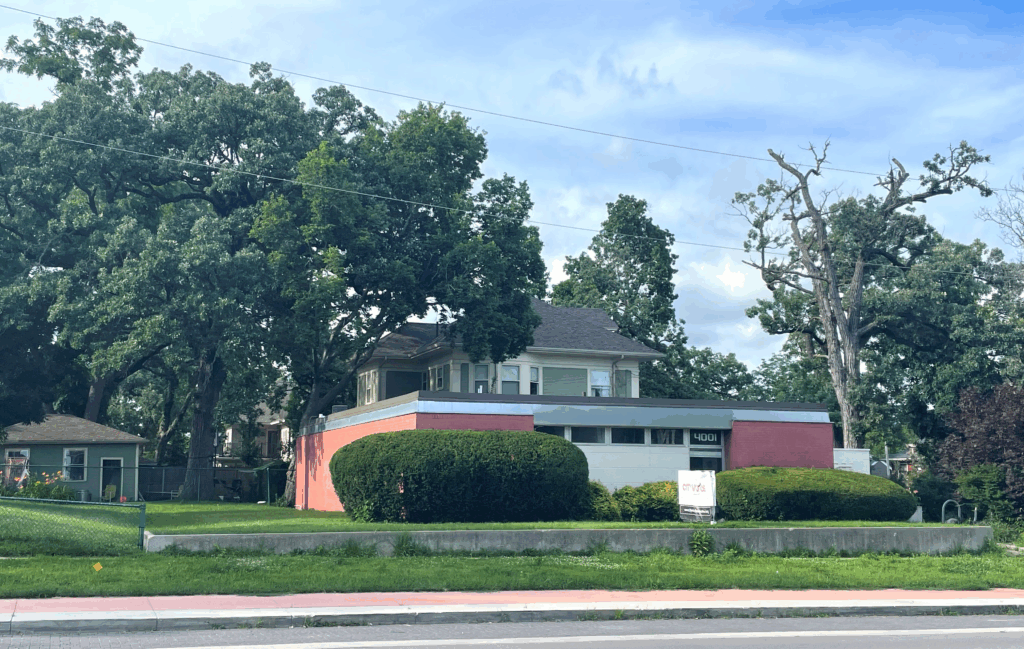Guest Opinion: Flex your resiliency muscles

By Kristin Griffith | Executive director, Young Women’s Resource Center
For the past few years, I’ve been on a journey alongside my employer, the Young Women’s Resource Center, to better serve girls and young women throughout Greater Des Moines by improving our understanding of trauma and its impact on our clients through adolescence and into their adulthood.
Research has proven that the traumatic events we experience as children, called ACEs (Adverse Childhood Experiences), can damage the structure and function of the brain. The more ACEs we experience as children, and the longer their duration, the greater the odds are that we will have negative health outcomes as adults, including cancer, chronic illness or substance abuse.
Exposure to ACES and trauma is not just a phenomenon faced by the girls and young women. Women of all ages in our community have been impacted by trauma during their lives. Data from the largest and most comprehensive study conducted in the U.S. on trauma revealed that 66 percent of women experienced abuse or violence in childhood, while 22 percent of all women were sexually abused as children. All of these women face increased risk of negative health outcomes as a result of childhood trauma. The study, conducted by the CDC and Kaiser Permanente, was called the ACE study and looked at data from over 17,000 persons.
The idea of lasting negative effects can seem daunting, but it’s important to know you can build resiliency and combat them at any age. Think of resiliency as a muscle, as something you can build and strengthen your entire life. People who are resilient have a number of common skills. They have connections and strong social networks, are confident, exhibit self-esteem, are driven by a sense of purpose, and utilize coping and self-control skills. Essentially, resiliency counteracts trauma.
I recently came across an insightful article in the New York Times by Tara Parker-Pope called “How to Build Resilience in Midlife.” Parker-Pope’s article provides a number of very practical tips that all of us can use to regularly exercise our resiliency muscle:
- Practice optimism – How often do we get stuck in the negative, especially in these dark and rainy fall days. Or as Parker-Pope writes, “thinking positive thoughts and surrounding yourself with positive people really does help.” Our resiliency muscle exercise is to practice redirecting our thoughts and carefully choosing who we spend our time with. Simple actions can have big payback.
- Don’t personalize it – As humans we often blame ourselves for all that goes wrong in our worlds, a trait that we women often perfect. Think about the last time you, or a woman in your life, tried to the take the blame for something completely outside her realm of control. We can flex our resiliency muscle in these situations by consciously adding logic and an understanding of what we actually do impact.
- Support others – Resiliency research repeatedly demonstrates the benefit of having support networks. Giving this support can also boost our resiliency muscle by creating a sense of purpose. A long, proud history of philanthropy is embedded in our Greater Des Moines community. Volunteering, donating or providing support not only helps build a strong community, but also helps us thrive as individuals.
Resiliency is a key muscle, and not just something that is important in youth. We all need to ensure we are systematically taking action to boost our own resiliency so we may live fulfilled, healthy lives.
Kristin Griffith became executive director of Young Women’s Resource Center in September 2015. Griffith received her bachelor of arts in biology from Central Methodist University, her master of public health from Boston University, and her MBA from York University. She joined the Peace Corps after college, which hooked her on humanitarian work.










